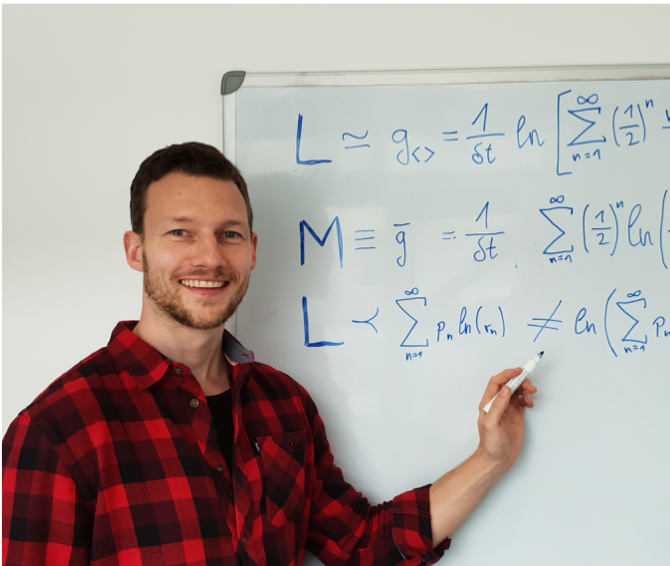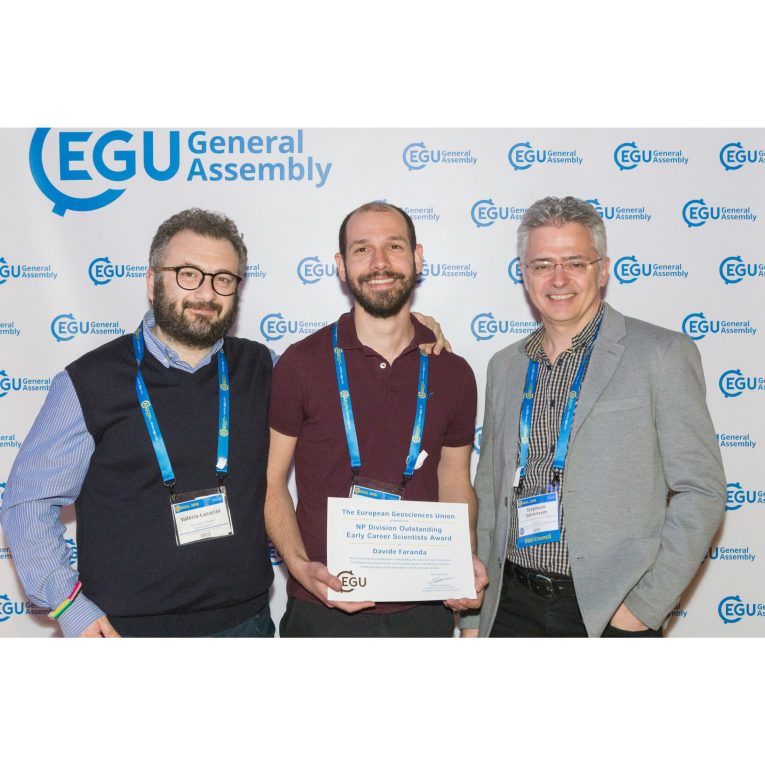Category: News
-
Congratulations to Ole Peters on being awarded Freedom of the City of London
Posted on
by
Congratulations are in order for LML Fellow and Co-founder Professor Ole Peters who was awarded the Freedom of the City of London on 19 July 2024, having been nominated for his contributions to research into economics, in particular his formulation of Ergodicity […]
-
Online conference on Ergodicity Economics, January 2021
Posted on
by
The mathematical concepts of randomness were first developed in economics in the 17th century, primarily in the context of problems of gambling and games of chance.
-
Seminar Series: COVID-19
Posted on
by
Along with colleagues Jorge Velasco-Hernandez and David Sanders, LML External Fellow Isaac Pérez Castillo has organised a series of seminars to be held throughout the rest of the year on topics linked to the COVID-19 pandemic.
-
Data Science for Social Good (DSSG) Summer Fellowship programme
Posted on
by
High-profile data horror stories are becoming increasingly common, from Facebook’s relationship with Cambridge Analytica to the leak of UK diplomatic cables and massive security breaches at some of the world’s biggest companies.
-
Mark Kirstein becomes a DAAD PRIME Fellow
Posted on
by
LML Fellow Mark Kirstein has received a PRIME fellowship from DAAD (the German Academic Exchange Service). This will support a 12-month research visit to the London Mathematical Laboratory, followed by a postdoctoral position at Leipzig University for 6 months. Mark will use […]
-
The LML has hired External Fellow Erica Thompson as Principal Investigator of Inference from Models
Posted on
by
Erica’s research focusses on subtle issues affecting the use of mathematical models and simulations in aid of real-world decision making. In her own words,
-
LML Fellow Rainer Klages has been awarded a Mercator Fellowship to support an 8-month guest professorship at the Technical University of Berlin
Posted on
by
Rainer was recently nominated for the Fellowship by the Institute of Theoretical Physics at the Technical University of Berlin. The Fellowship will support a guest professorship, enabling him to work with scientists of the German Collaborative Research Centre ‘Control of self-organising nonlinear […]
-
Agreement between LML and the National Autonomous University of Mexico to fund a postdoctoral research assistant.
Posted on
by
The London Mathematical Laboratory has signed a new research agreement with the Institute of Physics at the National Autonomous University of Mexico (UNAM) in Mexico City.
-
LML External Fellow Davide Faranda has received the 2018 Outstanding Early Career Scientists Award of the European Geosciences Union
Posted on
by
Davide was given the award for “his exceptional contributions to developing the theory of extreme values for dynamical systems and its use for analysing the underlying properties of the dynamics of the atmosphere and the climate system.”
-
Baillie Gifford sponsors LML Economics project
Posted on
by
We are delighted to share the news that Baillie Gifford has become LML’s first corporate sponsor, donating £1 million over four years to support our research into economics. We are grateful for this generous philanthropy, which will help us accelerate progress in this ground-breaking scientific programme.









